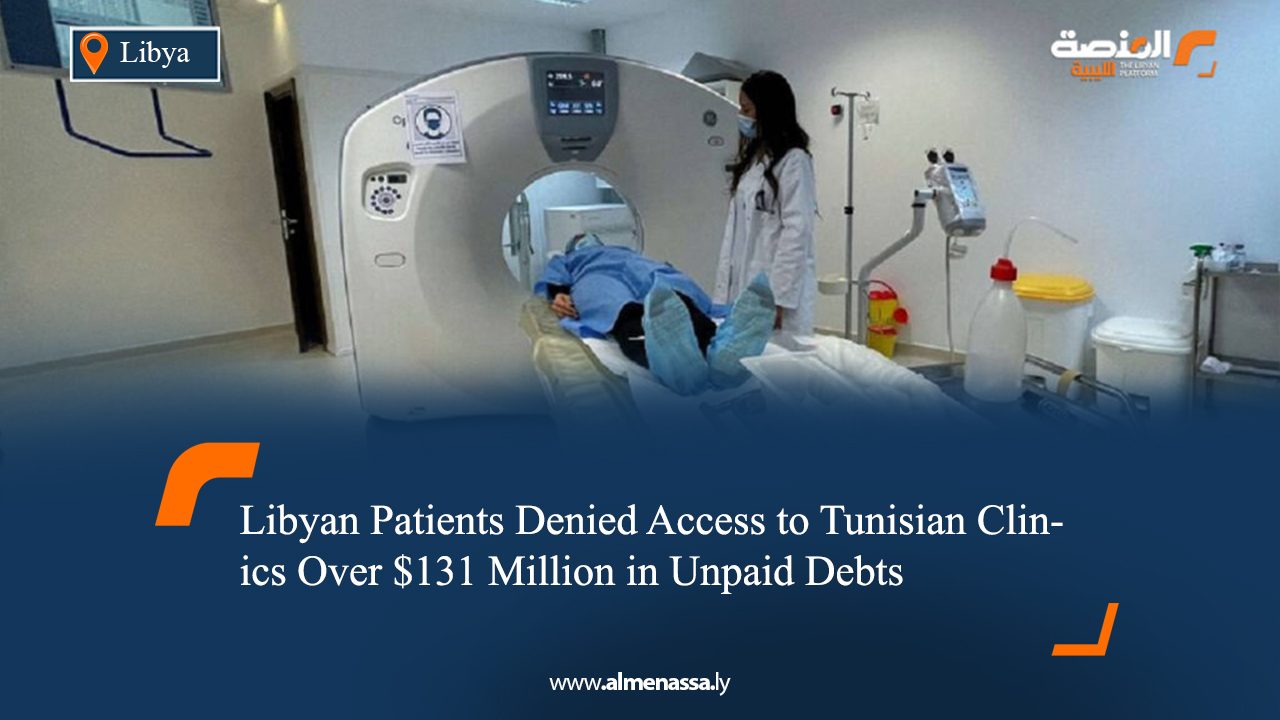Private clinics in Tunisia have stopped admitting Libyan patients after outstanding medical debts exceeded $131 million, according to official estimates covering 60 facilities.
The Libyan embassy in Tunis confirmed the suspension, stating that clinics will not accept new Libyan patients until the debts are settled. However, those currently undergoing treatment will continue to receive care uninterrupted, in an apparent effort to reassure families and avoid a humanitarian crisis.
Longstanding Financial Dispute
The debt issue dates back several years and remains unresolved despite repeated efforts by successive governments in both countries. In February, Tunisian and Libyan authorities held talks and signed agreements aimed at addressing the situation.
A high-level Libyan delegation, including Ahmed Malitan, head of the Agency for Support and Development of Therapeutic Services, and Libyan ambassador Mustafa Qadara, met with Tunisian Health Minister Mustafa Al-Farjani to establish new frameworks for cooperation.
The agreements included mechanisms for joint healthcare investment, debt settlement for public and private institutions, and the launch of a unified digital platform to track patients from arrival to discharge. A centralized registration office was also proposed to ensure transparency and oversight. Yet, the core issue of unpaid debts remains unresolved.
Testimonies and Context
Mustafa Abdelkabir, head of the Tunisian Observatory for Human Rights, noted that the number of Libyan patients has surged since 2011. Before that, direct cash payments were the norm, making treatment easier for both Libyan citizens and Tunisian clinics.
Following the collapse of Libya’s former regime and the rise in casualties and chronic illnesses, Tunisia became a primary destination for Libyans seeking medical care. In 2013, Libyan authorities issued a decision to cover treatment costs through the embassy, extending the benefit beyond military and security personnel.
Abdelkabir added that Tunisia has repeatedly experienced payment delays, and although Libya attempted to reschedule the debts, full repayment has yet to materialize.
Scope of the Crisis
Libyan patients account for roughly 70% of all foreign patients in Tunisian clinics, with an estimated 1.5 million annual consultations allocated to them.
Idris Al-Qaed, a former Libyan official at the World Health Organization, explained that the crisis stems from widespread approvals for state-funded treatment without proper financial authorization or oversight by specialized committees—leading to uncontrolled debt accumulation.


